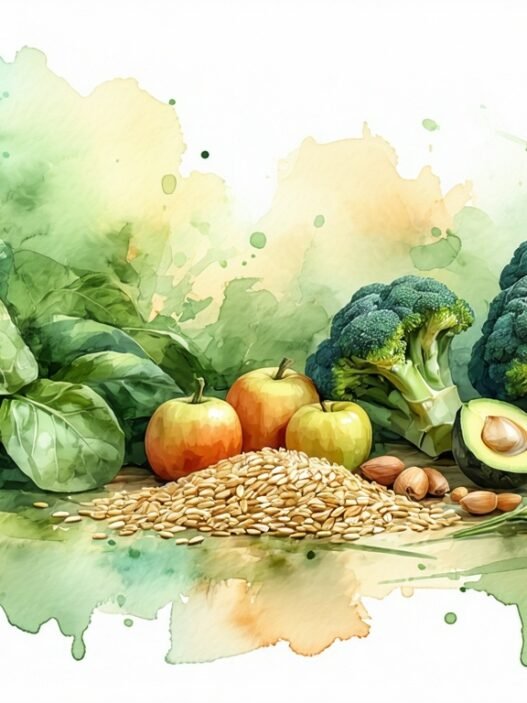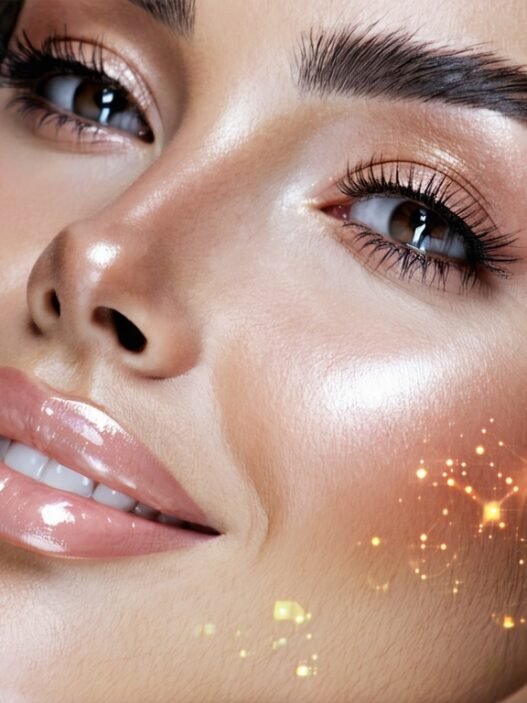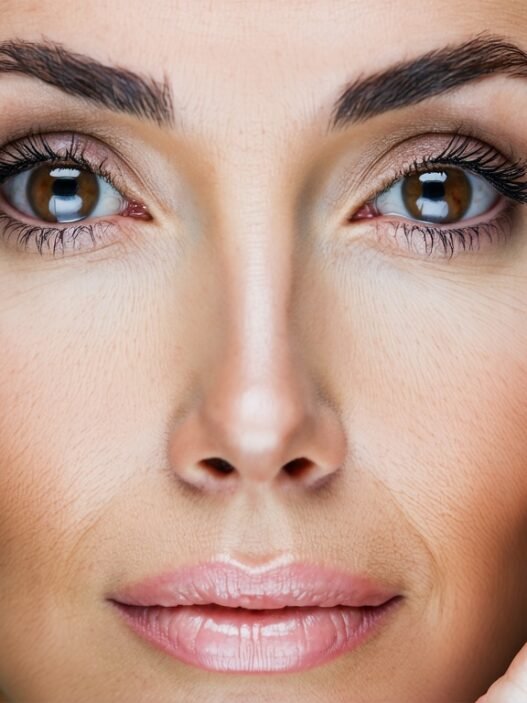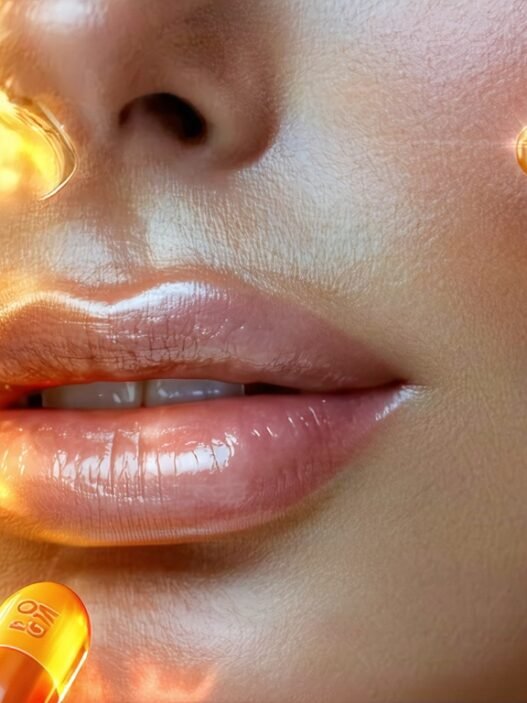CoQ10 and Anti-Aging
Exploring the benefits of Coenzyme Q10 (CoQ10) reveals its significant role in anti-aging and skin health. Understanding this compound and its impact on aging can help individuals incorporate it effectively into their skincare routine.
Understanding Coenzyme Q10
Coenzyme Q10 is a naturally occurring antioxidant found in the cells of the human body. It’s crucial for producing energy within cells, specifically within the mitochondria. As people age, the levels of this vital compound diminish, which can impact cellular functions and contribute to the visible signs of aging (Nivea UK).
Benefits of CoQ10 in Anti-Aging
Reducing Wrinkles
CoQ10 has been proven to reduce the depth and severity of wrinkles. It achieves this by improving skin cell function and boosting cell regeneration, which decreases the oxidative damage caused by external factors like ultraviolet (UV) rays Healthline). Studies show that topical application of CoQ10-containing formulas can increase the levels of this compound in the skin, providing antioxidative effects that help reduce fine lines and wrinkles.
Enhancing Skin Elasticity
One of the prominent benefits of CoQ10 is its role in the synthesis of collagen and elastin, essential proteins that maintain the skin’s structure and elasticity (Nivea UK). Collagen contributes to skin firmness, while elastin enables the skin to stretch and return to its original shape. By supporting the production of these proteins, CoQ10 promotes more youthful-looking skin. Detailed insights on coq10 and skin elasticity can be found through our link.
Mitigating Oxidative Damage
CoQ10 acts as a powerful antioxidant, neutralizing free radicals that can accelerate the aging process (PubMed Central). It helps to reduce cellular damage and improve skin health, offering a protective effect against environmental stressors such as pollution and sun exposure.
Supporting Cellular Health
By ensuring optimal mitochondrial function, CoQ10 contributes to the overall health and vitality of skin cells (Healthline). Healthy mitochondria are essential for energy production, cellular repair, and regeneration, which are crucial for maintaining a youthful appearance. For more information on how CoQ10 supports cellular health, visit our article on coq10 and mitochondrial function.
| Benefits of CoQ10 | Description |
|---|---|
| Reducing Wrinkles | Decreases depth and severity of wrinkles. |
| Enhancing Skin Elasticity | Supports production of collagen and elastin. |
| Mitigating Oxidative Damage | Neutralizes harmful free radicals. |
| Supporting Cellular Health | Ensures optimal mitochondrial function. |
Conclusion
Incorporating CoQ10 into your skincare routine can provide numerous anti-aging benefits, from reducing wrinkles to enhancing skin elasticity. For additional resources, check out our guides on coq10 and skin wrinkles and coq10 benefits for skin.
CoQ10 in Skin Health
Role of CoQ10 in Skin Aging
CoQ10, or coenzyme Q10, is a vital compound involved in cellular energy production and acting as a powerful antioxidant. As individuals age, the levels of CoQ10 in the skin naturally decrease, contributing to visible signs of aging such as wrinkles and reduced elasticity (J Clin Aesthet Dermatol).
CoQ10 plays several essential roles in maintaining skin health and mitigating the aging process:
-
Antioxidant Defense: CoQ10 provides a robust barrier against reactive oxygen species (ROS), which are harmful byproducts of cellular metabolism and UV exposure (PubMed Central). This antioxidant activity helps in reducing oxidative stress, a significant factor in skin aging.
-
Collagen Synthesis: CoQ10 helps inhibit the production of matrix metalloproteinases (MMPs), enzymes that degrade collagen and elastin in the skin. By doing so, it supports the structural proteins necessary for maintaining skin firmness and elasticity.
-
Cellular Energy: CoQ10 is integral for mitochondrial function, enhancing cellular energy levels, which are critical for effective skin cell functioning and regeneration.
Topical Application of CoQ10
Topical application of CoQ10 can effectively replenish its levels in the skin, offering multiple anti-aging benefits. When included in skincare products like creams and serums, CoQ10 is absorbed into the skin layers, enhancing cellular functions and providing antioxidative effects (PubMed Central).
Key Benefits:
-
Enhanced Antioxidant Properties: Topical CoQ10 reduces free radicals and enhances the skin’s antioxidant capacity, potentially leading to a more youthful complexion.
-
Improved Skin Elasticity: Studies show that CoQ10 stimulates fibroblast proliferation and collagen production, which can help improve skin elasticity and firmness (J Clin Aesthet Dermatol). Visit CoQ10 for skin elasticity for more details.
-
Reduction in Wrinkles: Regular application of CoQ10 has been shown to reduce the appearance of fine lines and wrinkles by stabilizing mitochondrial activity, leading to the regeneration of skin processes involved in cutaneous aging. Find out more about CoQ10 and wrinkles.
| Treatment | Results | Reference |
|---|---|---|
| Topical CoQ10 | Increased skin CoQ10 levels, reduced oxidative stress, improved collagen synthesis | PubMed Central |
| CoQ10 Cream | Enhanced skin elasticity, reduced wrinkles | J Clin Aesthet Dermatol |
Proper application of CoQ10 can make a significant difference in managing skin aging. For those interested in exploring specific products, see our recommendations on CoQ10 skin care products. Utilizing CoQ10 effectively can contribute to healthier, more youthful skin, making it an invaluable component in anti-aging skincare routines.
Research Findings on CoQ10
Studies on CoQ10 and Skin Wrinkles
Several studies demonstrate the efficacy of Coenzyme Q10 (CoQ10) in reducing skin wrinkles. Topical application of CoQ10-containing formulas has been shown to improve skin’s Q10 levels and provide antioxidative effects, enhancing cellular energy metabolism.
Research also indicates that CoQ10 supplementation improves cellular oxidative status and inhibits matrix metalloproteinases (MMPs) production, which are enzymes that degrade collagen and elastin in the skin. This process ultimately stimulates collagen synthesis, a critical component of maintaining skin firmness.
One particular study highlighted the beneficial effects of CoQ10 in reversing the effects of aging and UV exposure by increasing fibroblast proliferation and boosting mRNA expression of collagen, elastin, and heat shock protein.
| Study | Key Findings |
|---|---|
| PubMed Central | Improved skin’s Q10 levels, antioxidative effects, enhanced cellular energy metabolism |
| J Clin Aesthet Dermatol | Improved cellular oxidative status, inhibited MMPs, stimulated collagen synthesis, increased fibroblast proliferation |
For more information on the benefits of CoQ10 for skin, visit our dedicated article.
Effects of CoQ10 on Skin Elasticity
CoQ10 plays a vital role in synthesizing collagen and elastin, which are essential for maintaining skin’s structure and elasticity (Nivea UK). Collagen contributes to skin firmness, while elastin allows the skin to stretch and regain its shape. By promoting the production of these proteins, CoQ10 helps maintain healthier and more youthful-looking skin.
Topical treatments containing CoQ10 have been shown to increase the levels of this quinone on the skin surface and in deeper layers of the epidermis, indicating effective supplementation. This enhanced presence of CoQ10 supports the skin’s cellular energy metabolism, aiding in the maintenance of skin elasticity.
Furthermore, CoQ10 functions as a barrier against reactive oxygen species, protecting the skin from oxidative damage that can lead to decreased elasticity.
For more insights on how CoQ10 contributes to skin elasticity, check out our article on CoQ10 and skin elasticity.
Explore additional information on CoQ10 and wrinkles to understand the broader benefits of this vital compound in skincare.
CoQ10 and Skin Conditions
Coenzyme Q10 (CoQ10) not only plays a significant role in overall health but is also beneficial for specific skin conditions. Below, we explore its impact on age-related macular degeneration (AMD) and its protective properties for the skin.
CoQ10 for Age-Related Macular Degeneration
Age-related macular degeneration is a common eye condition that affects older adults. Research has shown that a combination of acetyl-L-carnitine, n-3 fatty acids, and CoQ10 can improve visual functions and fundus alterations in early AMD. This synergistic blend aids in enhancing cellular energy production and reducing oxidative stress, thereby supporting retinal health.
CoQ10 for Skin Protection
CoQ10 offers a multitude of benefits for skin protection, particularly as it relates to aging. When applied topically, CoQ10 helps reduce oxidative damage caused by UV rays, one of the primary culprits of skin wrinkles and premature aging. The antioxidant properties of CoQ10 bolster the skin’s natural defense mechanisms, reducing the depth of wrinkles and promoting a more youthful appearance.
Human and animal studies suggest that CoQ10 applied directly to the skin can decrease wrinkle depth and improve skin smoothness, making it a valuable ingredient in anti-aging skincare products. Furthermore, CoQ10’s ability to enhance lymphocyte capabilities to produce reactive oxygen species contributes to its effectiveness in fighting off diseases and maintaining skin health.
For those concerned with the aging process, incorporating CoQ10 into your skincare routine can offer protective and rejuvenating benefits. Discover more about the coq10 benefits for skin in our dedicated articles.
| CoQ10 Benefits | Study Findings |
|---|---|
| Reduces oxidative damage caused by UV rays | Studies show decreased depth of wrinkles upon topical application |
| Enhances lymphocyte function | Improves ability to fight diseases |
| Supports overall skin health | Promotes youthful and smooth skin |
Explore the best CoQ10 supplements and their role in enhancing both skin and overall health.
Application of CoQ10 in Skincare
Skincare Products with CoQ10
Coenzyme Q10 (CoQ10) is widely present in various skincare products due to its potential benefits in reducing skin wrinkles and improving overall skin health. Topical application of CoQ10 can enhance skin health by reducing oxidative damage caused by UV rays and promoting antioxidant protection (Healthline).
Some common types of skincare products containing CoQ10 include:
- Serums: Concentrated formulations that deliver CoQ10 directly to the skin.
- Moisturizers: Hydrating creams that incorporate CoQ10 for added anti-aging benefits.
- Eye Creams: Products specially designed to target fine lines and wrinkles around the eye area.
Clinical studies have shown that the use of CoQ10-based skincare products can result in significant improvements in antioxidative status, skin moisturization, and reductions in wrinkle depth and roughness in women aged 35 to 60 years. For a more detailed look at these products, you can refer to our guide on the best coq10 skincare products.
CoQ10 Benefits in Anti-Aging Products
CoQ10 plays a crucial role in the synthesis of collagen and elastin, essential proteins for maintaining the skin’s structure and elasticity. This contributes to healthier and more youthful-looking skin (Nivea UK). The antioxidative properties of CoQ10 help to stabilize mitochondrial activity and support the regeneration of skin processes involved in cutaneous aging. This has been shown to ameliorate signs of skin aging in clinical studies.
Some key benefits of using CoQ10 in anti-aging products include:
- Reduction in Wrinkle Depth: Clinical evaluations have demonstrated significant reductions in wrinkle depth and skin roughness with the use of CoQ10-containing products (J Clin Aesthet Dermatol).
- Improved Skin Elasticity: CoQ10’s role in collagen and elastin synthesis helps improve skin elasticity, giving the skin a firmer and more youthful appearance (Nivea UK).
- Enhanced Antioxidant Protection: By neutralizing free radicals, CoQ10 provides enhanced protection against oxidative stress and environmental damage.
Comparison of CoQ10 Benefits
| Benefit | Impact According to Studies |
|---|---|
| Reduction in Wrinkle Depth | Significant reduction in wrinkle depth and skin roughness |
| Improved Skin Elasticity | Enhanced collagen and elastin synthesis, improving elasticity |
| Antioxidant Protection | Neutralizes free radicals, reduces oxidative damage |
| Increased Skin Moisturization | Enhances skin hydration and overall health |
For those interested in learning more about the benefits of CoQ10 in anti-aging products, visit our detailed article on coq10 benefits in anti-aging products.
Overall, incorporating CoQ10 into your skincare routine can offer multiple benefits that address various aspects of skin aging. Whether you’re looking to reduce wrinkles, improve elasticity, or protect your skin from oxidative damage, products containing CoQ10 can be a valuable addition. For further insights into how CoQ10 can enhance your skincare routine, check out our article on coq10 and skin health and coq10 antioxidant benefits.
CoQ10 Delivery Systems
Understanding effective delivery systems for CoQ10 is key to maximizing its benefits for skin health. The delivery system ensures that CoQ10 penetrates deeply enough into the skin to exert its full effects. In this section, we explore methods to enhance CoQ10 delivery, focusing on the potential of protransfersomes.
Enhancing CoQ10 Delivery
Delivering CoQ10 effectively into the skin is crucial for its anti-aging benefits. The challenge lies in the molecule’s size and lipophilic nature, which can hinder its penetration. To overcome these challenges, several innovative delivery systems have been developed.
- Emulsions: Traditional emulsions involve the dispersion of CoQ10 in a medium, enhancing its absorption. While basic, this method provides a stable and simple solution.
- Liposomes: These spherical vesicles encapsulate CoQ10, improving its delivery through the lipid-rich environment of the skin.
- Nanoparticles: Tiny particles capable of penetrating deeper skin layers, nanoparticles increase the bioavailability of CoQ10.
For detailed information on CoQ10’s overall benefits and how it’s used in skincare, visit our article on coq10 benefits for skin.
Potential of Protransfersomes
Protransfersomes represent a cutting-edge advancement in enhancing the delivery of CoQ10. These vesicular systems are designed to improve the stability, penetration, and efficacy of CoQ10.
A study published by Scientific Reports demonstrated the effectiveness of loading CoQ10 into protransfersomes. The study found significant enhancements in collagen density and an increase in the number of fibroblast cells in UV radiation aged-induced mice. Additionally, Protransf-CoQ10 showed no skin irritation, indicating its safety for topical application.
| Advantages of Protransfersomes |
|---|
| Enhanced stability of CoQ10 |
| Improved skin penetration |
| Increased collagen density |
| Boost in fibroblast cell numbers |
| No skin irritation |
These findings highlight the significant potential of protransfersomes in skincare products. Incorporating CoQ10 in such advanced delivery systems can provide substantial anti-aging benefits, making it a valuable component in anti-aging products.
The advancements in CoQ10 delivery systems, including the use of protransfersomes, are paving the way for more effective and safer anti-aging skincare solutions. For those interested in the specific benefits of CoQ10 in anti-aging products, please refer to our articles on coq10 anti-aging properties and coq10 and wrinkles.




















